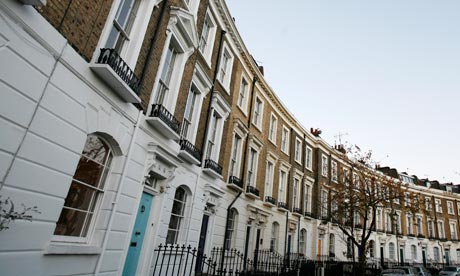 Ed Balls announcement of a mansion tax at the Labour party conference in September was widely expected. Little is known about the detail, only that properties valued over £2 million will face an annual tax with the aim of raising £1.2 billion in revenue to the Exchequer. Estimates of how many properties will be affected depend on your source: Savills suggest 97,000, Zoopla 108,000 and Knight Frank 110,000. One thing is certain, the vast majority of these properties will be in London – 87% according to BBC London, with 67% in just three London boroughs, Camden, Westminster and Kensington & Chelsea.
Ed Balls announcement of a mansion tax at the Labour party conference in September was widely expected. Little is known about the detail, only that properties valued over £2 million will face an annual tax with the aim of raising £1.2 billion in revenue to the Exchequer. Estimates of how many properties will be affected depend on your source: Savills suggest 97,000, Zoopla 108,000 and Knight Frank 110,000. One thing is certain, the vast majority of these properties will be in London – 87% according to BBC London, with 67% in just three London boroughs, Camden, Westminster and Kensington & Chelsea.
Labour had some of its best results ever recorded in the May 2014 London local elections, leading some commentators to conclude that the party may have shot itself in the foot with the proposed Mansion tax. Diane Abbott MP warned in June 2014 that “alarm bells” should be ringing because it would fall so much harder on Londoners. To assume that people owning properties worth £2m or more would never vote Labour does not follow logic in London. Three of the six constituencies in those boroughs are currently held by Labour MPs. Also rising house prices mean that properties could have been purchased for modest sums just 20 years ago and many homeowners will be asset rich and cash poor. According to BBC London, 33% of owners have lived in their London mansions for 10 years or more.
It is thought that people in these circumstances will be able to defer payments until the house is sold or their death, which could result in a hefty land charge on the property accumulating over many years. Details of the level of taxation are still unknown, but some estimates suggest an average of £11,000 per property, with the possibility of tiered levels of taxation similar to the tax levied on properties over £2million owned within companies. This dark cloud looms heavily over sales of £2million plus properties in London, already hit hard by the increase in stamp duty to 7%. Savills reports that the prime central market over £2million is “fully valued” will little growth to date in 2014. Meanwhile sales of properties between £1.95 to £2m in the lower 5% stamp duty band have increased by 114% since 2012.
If introduced, the tax will prove to be a windfall for surveyors. Homeowners would probably have to self declare the value of their home. This could be challenged by HMRC and it is estimated that 250,000 would pay valuers to prove their properties are worth less than £2million to stay below the tax threshold. It is understood that the threshold would rise over time to reflect house price inflation, so once you have proved your case you should be safe. Note that the threshold for the tax on properties owned in limited companies will fall from £2million to £500,000 in April 2015, could this happen to the Mansion tax over time?
Some commentators have already suggested elaborate schemes for getting around the tax, such as buying two separate properties under the threshold and connecting them. Another option is to create a separate “granny flat” to devalue the main property. But this is a thin market that is hard to value – what if the neighbour has an extension and you don’t – and who will be the adjudicator? Some argue that a tax on assets is fundamentally unfair because it is charged on an illiquid asset rather than on current earnings. Labour has shored up the morality of the policy by saying the extra revenues will be used for the health service – who could argue with that?








